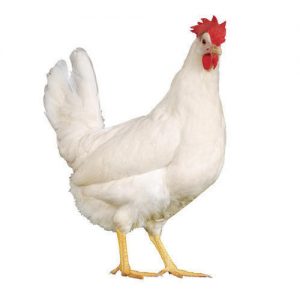
24 Poultry Farming Facts That You May Not Really Know
1, High environmental temperature is among the most important causes of poor performance in the poultry industry.
2. High temperatures have an effect on a number of systems in broilers, including the immune system.
3. When a heat stressed animal is faced with a pathogen challenge, the immune response might not be sufficient to overcome it, allowing colonization of the gut.
 Learn More
Learn More4. Synbiotics are a combination of prebiotics and probiotics that deliver beneficial bacteria to the gut, reducing the impact of heat stress on performance.
5. The object of cleaning is not so much the removal of all visible dirt and filth collections as the destruction of those invisible forms of life, the disease producing bacteria
6. The diarrheal discharges from sick birds may also contain disease producing organisms and thus become a very serious menace to the health of other members of the flock
7. The efficiency of a disinfectant depends primarily on the thoroughness of the cleaning of the houses and premises previous to the application of the disinfectant
8. Heat stress may produce an electrolyte imbalance in poultry.
9. It is important to maintain strict biosecurity measures and keep the litter dry to lower the risk of disease and other health issues.
10. As a flock of laying hens progresses through lay there is a tendency for birds to accumulate substantial deposits of fat in the liver.
11. Accumulation of fat deposits in the liver of hen often lead to reduced productivity and an increase in mortality.
12. Heat stress can increase water consumption by up to five times the normal level.
13.Exposure to heat stress for long periods, suppresses the responsiveness of the immune system.
14. One of the key components to a healthy bird is maintaining a diverse and healthy bacterial population in the gastrointestinal tract.(GIT)
15. Many feed stuffs are low in lysine and may require lysine supplementation to make up for the deficiency.
16. Copper supports the bone structure, egg production and hatchability and very important for production of red blood cells and General well being of poultry.
17. Vitamin C is a natural antioxidant and it improves resistance to infection while improving growth rates with improved egg production and egg shell strength.
18. Methionine is the first limiting amino acid in poultry diets.
19. Vitamin K is anti-hemorrhagic vitamin and supports against gizzard erosion and aids egg shell formation.
20, Vitamin B2 or Riboflavin is necessary for the metabolism of carbohydrates, proteins, nucleic acids and fats. It also promotes growth, food conversion and fertility.
READ ALSO: 22 Business wisdom for 21st century farmers
21. Vitamin A is essential for optimum immune function and essential for appetite, growth and reproduction.
22. Vitamin E is a powerful antioxidant and essential for optimum immune response and disease resistance among many others.
23. Vitamin D3 supports against rickets and growth rates with egg shell quality and hatchability.
24. Vitamin B12 is essential to basic metabolic functions, most importantly protein, fat and carbohydrates metabolism. It also supports feathering, leg and gizzard















